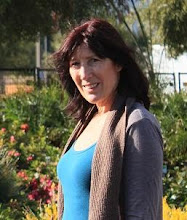A dozen ways to avoid the most brutal of crimes:
1. Avoid going out ALONE with anyone you don't know well.
3. Don't go to someone's apartment whom you do not know.
2. Stay with group when you are out socializing (e.g. partying)
3. Don't walk anywhere alone at night.
4. Have a friend or co-worker escort you to your car.
5. Make sure you keep your eye on your drink at all times.
6. Get your drink directly from the bartender, not a stranger.
7. Don't drink or take drugs to the point you can't make rational decisions.
8. Do not depend on self-defense techniques --gives a false sense of security.
9. Avoid dressing too provocatively.
10. Insist a date be completely respectful of your wishes.
11. LISTEN to your inner instinct...if you get a bad feeling, leave immediately.
12. If someone starts to attact you, scream "FIRE!" as loud as you can - you are more likely to attract attention and get help--plus screaming "FIRE" may startle and confuse your attacker -the last thing he/she wants is public attention.
I read "The Gift of Fear" and discovered it is a great book to give the women (and men) in your life...it may save theirs & yours!)
The Gift of Fear: And Other Survival Signals That Protect Us from Violence by Gavin De Becker.
Amazon.com review of "The Gift of Fear" --Each hour, 75 women are raped in the United States, and every few seconds, a woman is beaten. Each day, 400 Americans suffer shooting injuries, and another 1,100 face criminals armed with guns. Author Gavin de Becker says victims of violent behavior usually feel a sense of fear before any threat or violence takes place. They may distrust the fear, or it may impel them to some action that saves their lives.
A leading expert on predicting violent behavior, de Becker believes we can all learn to recognize these signals of the "universal code of violence," and use them as tools to help us survive. The book teaches how to identify the warning signals of a potential attacker and recommends strategies for dealing with the problem before it becomes life threatening. The case studies are gripping and suspenseful, and include tactics for dealing with similar situations.
People don't just "snap" and become violent, says de Becker, whose clients include federal government agencies, celebrities, police departments, and shelters for battered women. "There is a process as observable, and often as predictable, as water coming to a boil." Learning to predict violence is the cornerstone to preventing it. De Becker is a master of the psychology of violence, and his advice may save your life. --Joan Price --
Saturday, May 12, 2007
Subscribe to:
Post Comments (Atom)


No comments:
Post a Comment